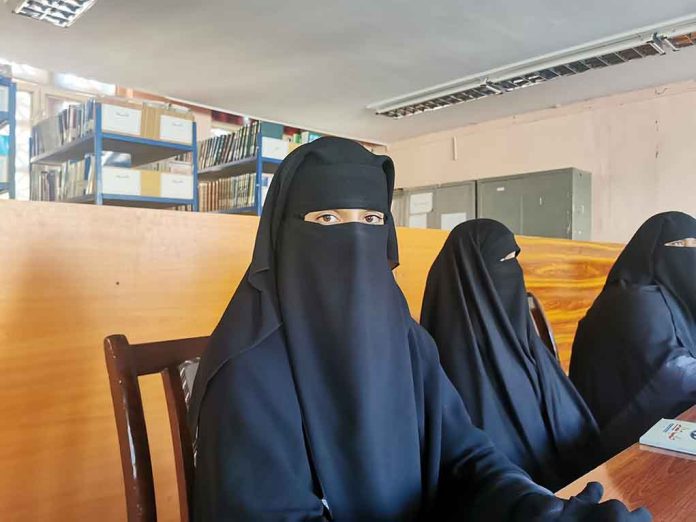
Afghan women defy Taliban’s oppression, pursue medical degrees in Scotland.
At a Glance
- 19 Afghan female medical students arrive in Scotland to continue education banned by Taliban
- Linda Norgrove Foundation, UK and Scottish governments collaborate to bring students to UK
- Students to study at universities in Edinburgh, St Andrews, Glasgow, Dundee, and Aberdeen
- Initiative part of UK’s Afghan citizens resettlement scheme (ACRS)
- Effort honors legacy of Linda Norgrove, Scottish aid worker killed in Afghanistan in 2010
Afghan Women Find Hope in Scotland
In a remarkable turn of events, 19 Afghan female medical students have arrived in Scotland to continue their education after being forbidden by the Taliban regime in their home country. This move comes as part of the UK’s Afghan citizens resettlement scheme (ACRS) and showcases the international community’s commitment to supporting displaced scholars facing daunting challenges.
The Linda Norgrove Foundation, in collaboration with the UK and Scottish governments, spearheaded this initiative. The foundation, established in memory of Linda Norgrove, a Scottish aid worker killed in Afghanistan in 2010, covered all costs, estimated at a minimum of £60,000. The Scottish Government took the extraordinary step of changing regulations to exempt these students from international student fees, further demonstrating their support for this cause.
A New Beginning for Afghan Women
The journey for these women has been arduous. Before traveling, they underwent TB tests, English tests, and university interviews. Now, they will be studying at prestigious institutions across Scotland, including universities in Edinburgh, St Andrews, Glasgow, Dundee, and Aberdeen.
“We’re all delighted to have finally succeeded after so much frustration,” said a spokesperson for the Linda Norgrove Foundation. “Finally these 19 incredibly talented young women get their future back with the opportunity of a tremendous education and a career. The alternative for them in Afghanistan wasn’t good.”
One of the students, Ms. Sultani, described arriving in Scotland as “like coming to paradise, the place where we can study. In Afghanistan studying is banned, we can not study.” This sentiment underscores the stark contrast between their new reality and the oppressive conditions they left behind.
The Taliban’s Ban on Women’s Education
The Taliban’s ban on women studying at universities, implemented in December 2022, has had devastating consequences. Approximately 450,000 female students in Afghanistan have been forced to quit their university programs due to this draconian policy. The impact on the country’s healthcare system is particularly severe, with Afghanistan having only 0.33 doctors per 1,000 people, far below the World Health Organization’s recommendation of 2.5 per 1,000.
“Since August 2021, an estimated 450,000 female students enrolled in 167 public and private universities in Afghanistan have been forced to quit their programs as a result of the Taliban’s ban on women’s education.” ~ Think Global Health
The ban has also prevented over 3,000 qualified female students from taking their medical exit exams, further exacerbating the shortage of healthcare professionals in the country. This situation highlights the critical importance of initiatives like the one undertaken by the Linda Norgrove Foundation and the UK government.
Challenges and Controversies
While this initiative is a step in the right direction, it’s not without its challenges and controversies. The UK government claims to have brought around 24,600 vulnerable people to safety, but critics argue that it is not fulfilling its commitments to Afghan refugees. There have been reports of delays and reluctance from the Home Office to bring more Afghan students to the UK.
“We have been very disappointed by the responses from the Home Office to our requests to bring in 20 medical students to the UK, where they have been offered places at all five Scottish medical schools,” said Lorna Norgrove.
Despite these challenges, the arrival of these 19 students in Scotland represents a beacon of hope for Afghan women seeking education and a better future. Their determination and resilience in the face of adversity serve as an inspiration to us all and a reminder of the power of education to transform lives.







